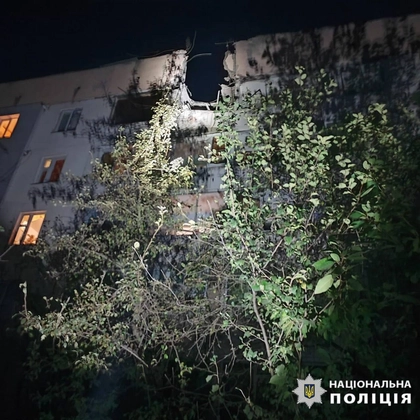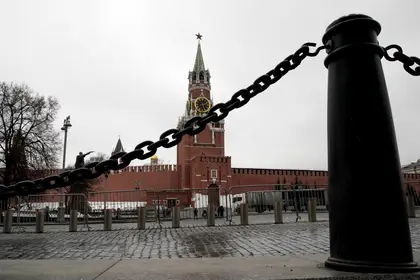Over the past year, the war has turned upside down the lives of Marko, Oleksandra and Nikol -- three young Ukrainians living their lives despite feeling lonely, remote and in pain.
In the family flat in Kyiv where he now lives on his own, Marko shows off a Christmas tree from 2021 that still dominates a corner of the sitting room.
JOIN US ON TELEGRAM
Follow our coverage of the war on the @Kyivpost_official.
"It's symbolic. It feels like life has been somewhat paused since the beginning of the war," said the information technology student, who will turn 18 in two months.
He left Kyiv for Lviv in western Ukraine on February 14, 2022 -- just 10 days before the Russian invasion began.
Marko said his mother "thought it would be a good idea to leave just in case, just to be safe".
He returned to the Ukrainian capital in June after spending several weeks abroad -- first in Poland, then in Britain and Spain with relatives and friends.
His parents are separated, and his mother now lives in the Netherlands while his father lives between Lviv and Kyiv.
Marko said returning to Kyiv made him "really happy although it was an incredibly stressful experience".
"Suddenly I was alone in a city that I've lived all my life in. I felt like I knew no one," he said, explaining that only "very few" friends returned from Europe.
- 'Hope the war will stop' -
"I felt so isolated in my hometown, which is a very weird experience. That was quite a difficult thing to deal with psychologically."

Kyiv Hit by Massive Drone Attack as Russian Strikes Target Multiple Ukrainian Cities
Since then, Marko has started university and formed a new circle of friends.
But, like other Kyiv residents, he has been hit by the rolling blackouts in the capital that began with Russian strikes on energy infrastructure from October.
"At first I was stunned. It was difficult to get back into work. I was just mentally distracted... It was also quite scary because you don't know where the missiles are going to land," he said.
Oleksandra, 19, who has been living in Bonn in Germany with an aunt since March 2022, said she "can't stop thinking" about what is happening in her homeland.
"Your friends, your parents, your loved ones, all your life" is in Ukraine, said the young woman, who used to study in Kharkiv in the northeast of the country -- a city that was under siege from Russian forces at the beginning of the war.
At first, Oleksandra thought that she would stay just a couple of weeks in Germany before returning home.
"I had not envisaged this life for myself. Until February 24, everything was happening as planned. I wanted to study law. Now I do not have this opportunity," she said in a telephone interview.
"I hope the war will stop in six months, in a year and I can continue my studies" in Kharkiv, she said.
- 'Appreciate what you have' -
Nikol, 22, said she too would like to return to her home city of Mariupol in southern Ukraine, which has been under Russian occupation since May.
A graduate in international relations, she is unemployed and lives with her sister in Kyiv.
Her sick mother was evacuated from Mariupol when medicine started getting scarce and later died in hospital.
"I can be sad because of some memories and moments in my life but I can't say I am unhappy," she said.
"I can't stop being grateful to be sitting here speaking to you. When your life is in danger and you could have died a thousand times but that did not happen, you just appreciate what you have."
Marko said he too felt "fortunate" even though he feels "constant stress, partially because of the war, partially because it is difficult to transition into life as an adult under these conditions".
Marko has volunteered for a non-governmental organisation helping to clean up rubble from destroyed homes in the Kyiv suburbs.
Like all adult men, he is also liable to be called up to serve in the army and wonders if he would be "brave enough".
"If your allies have to focus on saving someone who is just in a state of shock on the front line then you can be of detriment. I do not want to be that person."
You can also highlight the text and press Ctrl + Enter






